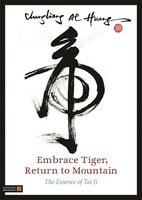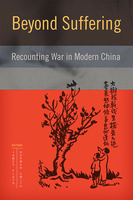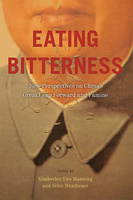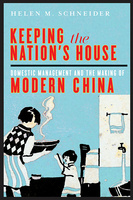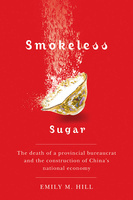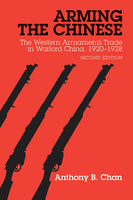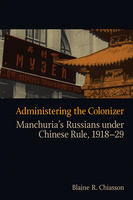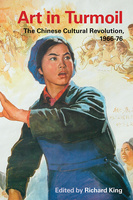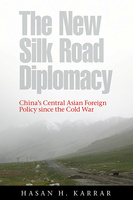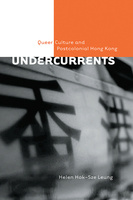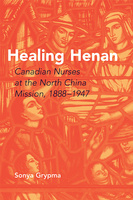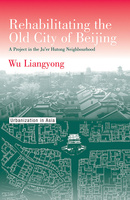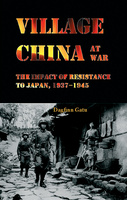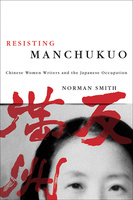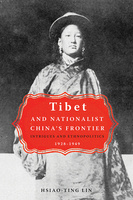Embrace Tiger, Return to Mountain
The Essence of Tai Ji
The seminal classic text of Taoism and Tai Ji.
Beyond Suffering
Recounting War in Modern China
This collection moves beyond the geopolitical sphere to examine the multiple fronts – personal, social, and institutional – on which wars in modern China have been fought, experienced, and remembered.
Eating Bitterness
New Perspectives on China's Great Leap Forward and Famine
Eating Bitterness reveals what the Great Leap Forward meant for ordinary men and women in Maoist China.
Keeping the Nation's House
Domestic Management and the Making of Modern China
Explores the vision and aspirations of elite Chinese women – home economists – who believed that the birth of modern China should begin in the home.
A Tai Chi Imagery Workbook
Spirit, Intent, and Motion
This innovative book makes the benefits of Tai Chi directly available to Westerners by communicating its essence in poetic, evocative, and humorous images.
Smokeless Sugar
The Death of a Provincial Bureaucrat and the Construction of China's National Economy
An investigation into the 1936 execution of a Cantonese official leads to a reassessment of regional and national politics and state-led industrialization in Republican China.
Arming the Chinese
The Western Armaments Trade in Warlord China, 1920-28, Second Edition
Anthony Chan repositions his classic account of the arms trade in warlord China within the paradigm of critical militarism and state criminality.
Administering the Colonizer
Manchuria’s Russians under Chinese Rule, 1918-29
A revisionist history of a unique administrative experiment – the Chinese administration of Manchuria’s Russians in the 1920s – that supports a more nuanced view of Chinese nationalism and China’s relationship with minority cultures.
Art in Turmoil
The Chinese Cultural Revolution, 1966-76
This book decodes the rhetoric of China’s turbulent decade, a time of both brutal iconoclasm and radical experimentation in the arts, to offer new insights into works that have transcended their times.
The New Silk Road Diplomacy
China's Central Asian Foreign Policy since the Cold War
The New Silk Road Diplomacy traces how China, faced with internal and external challenges to its authority following the collapse of the Soviet Union, constructed a gradualist approach to Central Asia that prioritized multilateral diplomacy.
Undercurrents
Queer Culture and Postcolonial Hong Kong
Undercurrents engages the critical rubric of “queer” to examine Hong Kong’s screen, uncovering a queer media culture that has been largely overlooked by critics in the West, and demonstrates the cultural vitality of Hong Kong amidst political transition.
Healing Henan
Canadian Nurses at the North China Mission, 1888-1947
Set against a backdrop of war and revolution, this book brings sixty years of missionary nursing out of the shadows by examining how Canadian nurses shaped health care in the province of Henan and how China, in turn, influenced the nature of missionary nursing.
Rehabilitating the Old City of Beijing
A Project in the Ju'er Hutong Neighbourhood
Wu Liangyong offers a new direction for the planning and development of China's capital.
Chinatowns
Towns within Cities in Canada
From instant Chinatowns in gold- and coal-mining communities to new Chinatowns which have sprung up in city neighbourhoods and suburbs since World War II, this is definitive history of Chinatowns in Canada.
Village China at War
The Impact of Resistance to Japan, 1937-1945
History accelerated.
The Chinese State at the Borders
The essays in this volume look at China's relationships with border peoples over a long span of time, questioning whether the process of expansion was a benevolent civilizing mission.
Resisting Manchukuo
Chinese Women Writers and the Japanese Occupation
Teachers’ Schools and the Making of the Modern Chinese Nation-State, 1897-1937
This innovative account examines the social and political impacts of Chinese teacher's schools in the early 20th century, their role in a society in transition, and their production of grassroots forces that lead to the Communist Revolution.
Tibet and Nationalist China's Frontier
Intrigues and Ethnopolitics, 1928-49
A counterpoint to erroneous historical assumptions, this book argues that Nationalist sovereignty over Tibet and China's other border regions was the result of rhetorical grandstanding by Chiang Kai-shek and his regime.
Frontier People
Han Settlers in Minority Areas of China
Frontier People shows how the Han themselves have been directly involved in the process of transforming the areas where they have settled.

